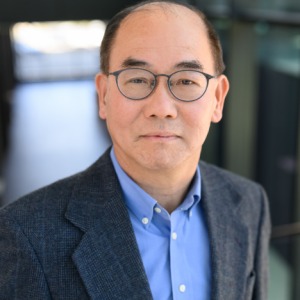
Jinming Yang, MD, PhD
Connect
(859) 562-2154jyang@uky.edu
Positions
- Professor
College Unit(s)
Other Affiliation(s)
- Pharmacology and Nutritional Sciences - Joint Faculty
Research
Molecular determinants and signal transduction pathways of tumor progression and therapeutic resistance have long been my interests and focus. Target identification and drug discovery via development of small molecules that target the components of signaling pathways are also my main research interests. My research spans molecular and cellular biology and pharmacology, to tissue culture and animal models. Over the years my group has made several seminal observations that contribute to the understanding of the molecular mechanisms of cancer drug resistance, and to the exploration of novel strategies to circumventing therapeutic resistance. We elucidated the role that second messenger systems play in regulating P-glycoprotein, the product of MDR1 gene, showing the importance of protein kinase C in this pathway (Cancer Res, 1996). We went on to find that phosphorylation of P-glycoprotein is a response to the cellular stress imposed on cells (Biochem Pharmacol, 1997), and phospholipase C, an enzyme that regulates the activity of protein kinase C and can in itself be modulated by some growth factors and other oncogene products, initiates this reaction cascade. Phospholipase C-mediated signaling also plays an important role in regulating the expression of MDR1 gene, and transcriptional activation of MDR1 by phospholipase C is mediated through the Raf-MAPK pathway (Mol Pharmacol, 2001). We also found that the expression of the multidrug resistance protein 1 (MRP1) is regulated by p53 in human prostate cancer cells (J Clin Invest 105: 1261-1267, 2000). We discovered that the stability and function of P-glycoprotein can be regulated by the ubiquitin-proteasome pathway, suggesting that modulating the ubiquitination of P-glycoprotein might be a novel approach to reversal of multidrug resistance (Mol Pharmacol, 2004). In addition, we made the somewhat startling observation that P-glycoprotein (+) cancer cells were more invasive than isogenic counterparts, and this lead us to discover the important role of extracellular matrix metalloproteinase inducer (EMMPRIN) in this process (Mol Cancer Res, 2003; J Biol Chem, 2006). My laboratory is the first to exploit the RNAi approach to overcoming multidrug resistance (MDR) mediated by P-glycoprotein (this work was published in 2003 in Cancer Research), and to reveal the roles of microRNAs in controlling MDR1 gene expression (Biochem Pharmacol, 2008). We are also the first to report the role and mechanism of microRNA in regulating expression of beclin 1, a key autophagy-promoting gene. We revealed that beclin 1 gene is a target for miR-30a, and this miRNA plays a critical role in regulating autophagic activity through modulation of beclin 1 expression (Autophagy, 2009). My current work focuses on the role of metabolic reprogramming in modulating cancer immunotherapy.